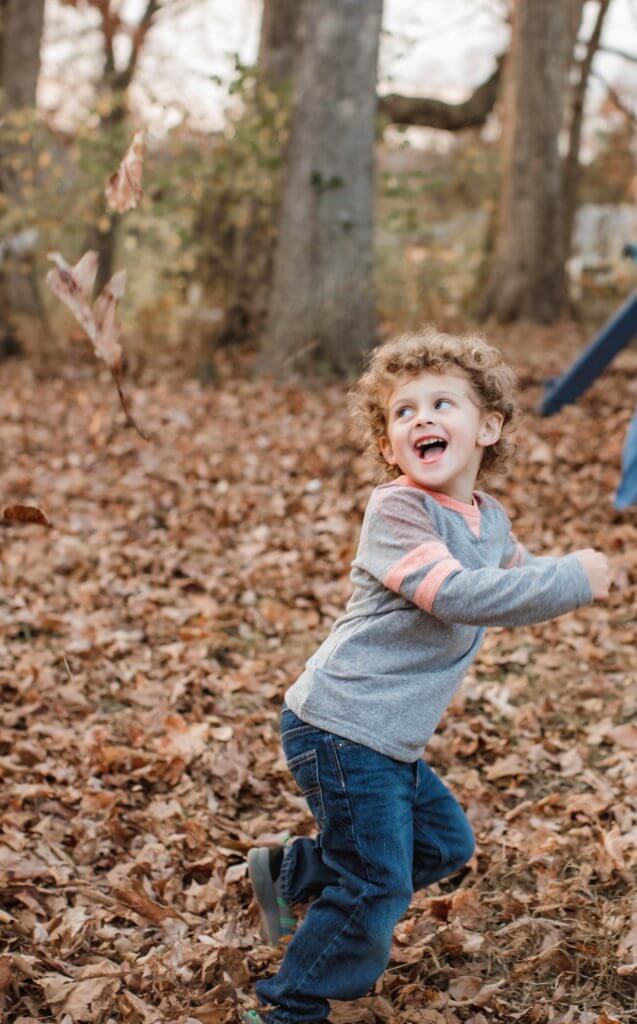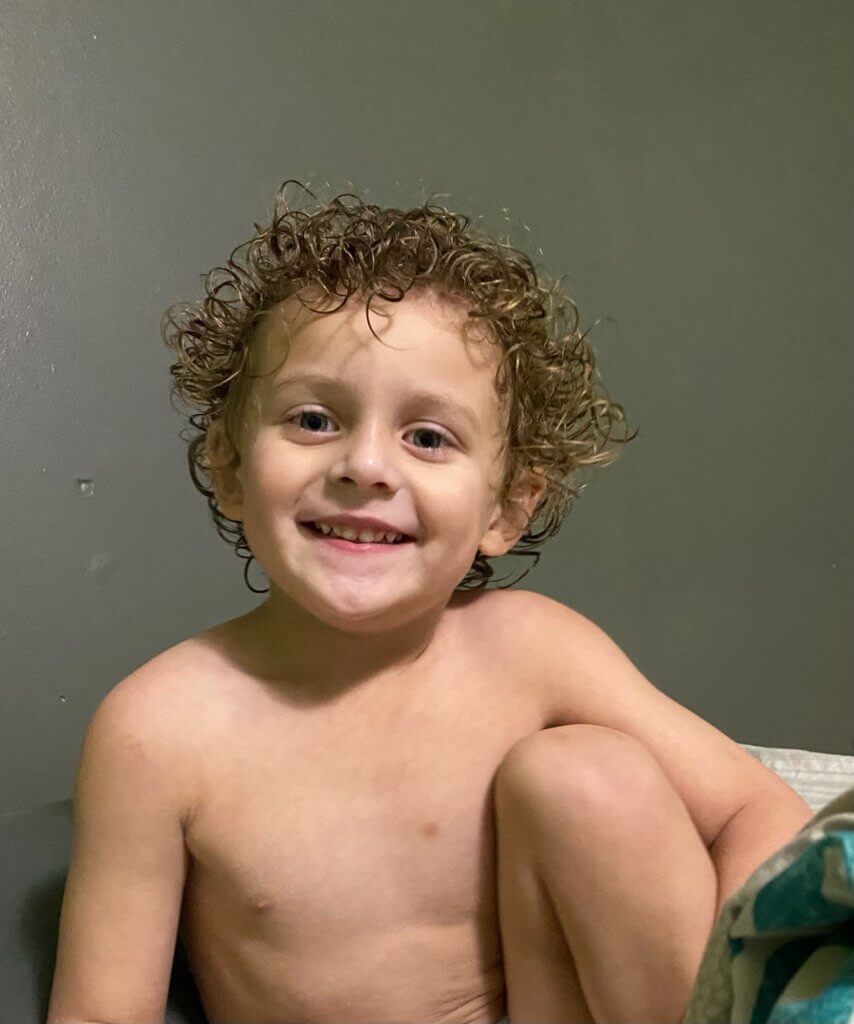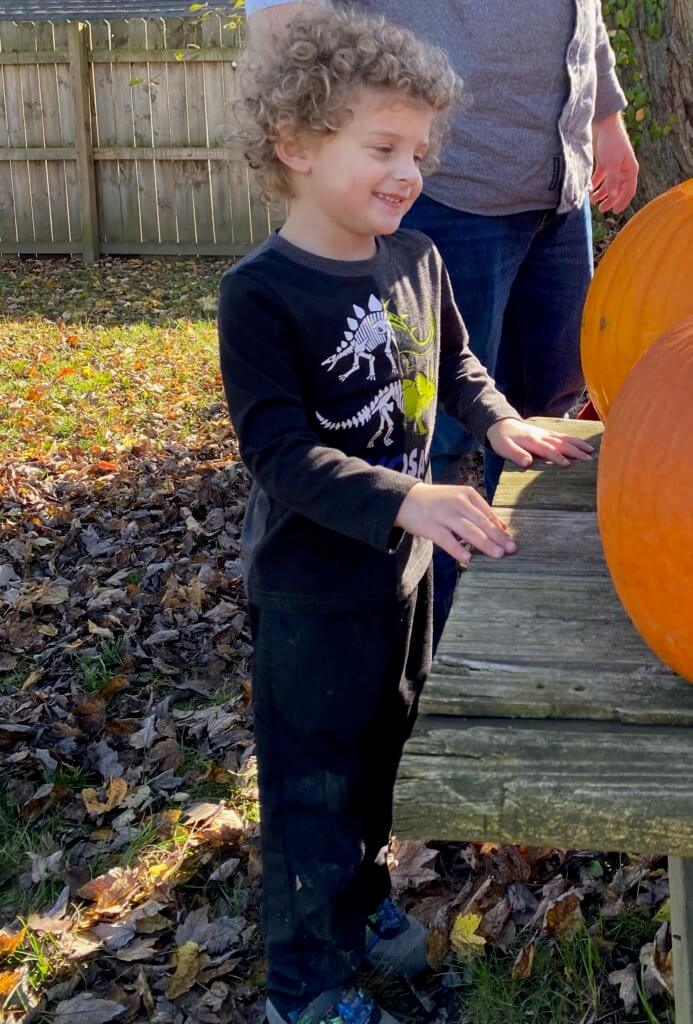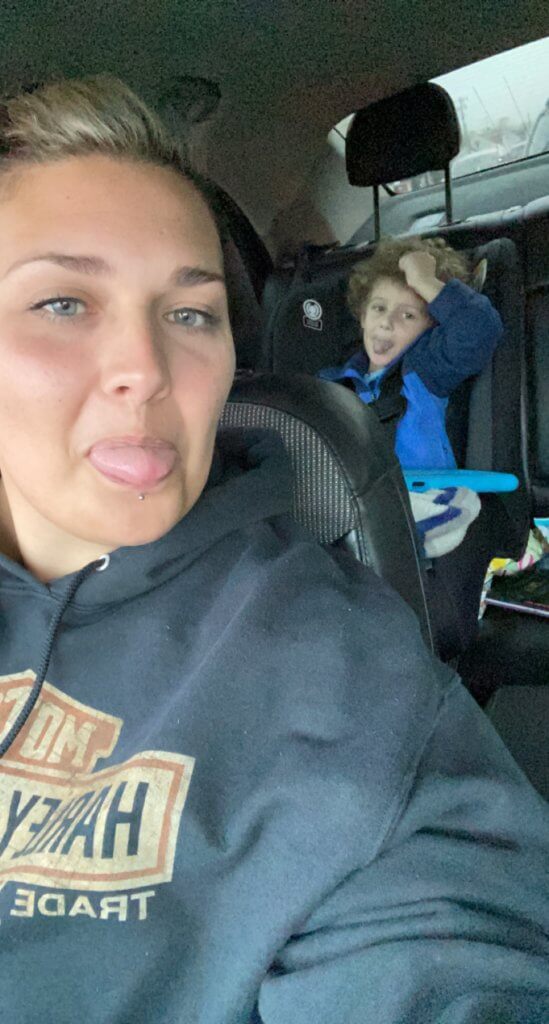What I Wish I Could Tell Others When My Child is Having a "Meltdown"
December 21, 2020
December 21, 2020

What is it like to be an autism parent? Chances are, if you’re reading this, you know the answer first-hand, or you know about it indirectly through someone close to you.
We recently had the chance to chat with one mom, Bri, whose son, attends applied behavior analysis (ABA therapy) at our Hopebridge Autism Therapy Center in Milford, Ohio. Bri is an advocate for her son, Rowan, the autism community and early intervention services like ABA. She recently shared one of the struggles that many individuals with special needs – and their families – know all too well, plus what she wishes others knew during those difficult moments.
My son is my world. He is loving and affectionate. His daddy is his number-one dude in life. He adores anything with wheels and could jump up and down all day long.
My boy also has his moments. His very public moments.
Pretty tough tantrums occur two to three times a week, complete with loud noises and hand-flapping. They often crop up in plain sight of others who whisper and stare; some thinking, “get a hold of your child.”

Here’s the challenge: Rowan is not like his “typical” peers. He has autism spectrum disorder (ASD). As part of his symptoms, he is non-verbal, which makes it difficult for him to communicate when or why he is frustrated. While I’d hope our society could be more understanding of any child and parent dealing with meltdown mode, these moments are especially complicated for families affected by autism.
I’m not here to scold. I get it. I had to come to terms with my own thoughts and understand I used to be that person on the other side. Since I became a special needs parent, my eyes have opened wide to the struggles others may be coping with and I look at the world with an entirely different view. It’s upsetting to remember I used to rush to judgement, but I also know it’s nearly impossible to have the same clear perspective as when it involves your own child.
In these moments, I’ve learned yelling or explaining what someone did wrong does not help. Instead, it’s important to be the peace.
Here are some of the things I wish I could go back to tell my former self … and others witnessing these situations:
“My child is autistic and he’s making these noises because he is really excited. He can’t tell me verbally, so he uses these noises instead.”
“I’m sorry that it’s bothering you, but I promise he’s having a more difficult time than you are experiencing. I hope you can understand these moments can be unpreventable.”
“These kids and adults deserve the same kindness and respect we give everyone else. Please be nice.”
All kids have their own triggers. For my son, it’s sensory overload. Even the grocery store can be overwhelming. Imagine this: his tablet is playing, we’re talking to him, others are engaging in conversation, bright lights are shining on him, thousands of brightly colored items line the shelves, there are continuous tiles and lines along the floor, the shopping cart is moving and the wheels are turning.
Can you envision how difficult it is to get through normal, daily activities for someone who notices every single one of these elements? These things don’t bother most of us, but it’s all too much for Rowan.
His outbursts thankfully do not occur as frequently now that Rowan attends ABA therapy at Hopebridge, but they do still happen. We thankfully took advantage of early intervention options, but before participating in ABA, we weren’t even close to qualified to understand Rowan’s challenges. We were winging with parenting; trying the same things we did with our neurotypical children. The problem was, nothing worked because he’s wired a little differently.
Now, with help from his therapy team, we better understand how to navigate his behavioral triggers and try to base our outings on the number of transitions involved. That may sound silly to some, but for us, it’s game-changing. Getting in and out of the car seat is one transition. Placing Rowan into a shopping cart is two and out of the cart is three. Getting back into the car after the store is step four. We can really only get through two or three stops before he has had enough, so we have to keep him in mind when we leave the house to run errands or visit other people and places.
It’s not just public outings, either. We’ve skipped holidays because they were too stressful. At least in stores, people try to maintain some kind of distance. During holidays, however, we’re around family we don’t see often so they want to offer big hellos and hugs. While it seems lovely, this unfortunately makes things difficult and awkward for us.
We never want to be rude, but it’s important we respect our son’s boundaries. Those boundaries do not include kisses from people he barely knows in an overwhelming setting that appears foreign to him. If we allow him to be overstimulated, we risk Rowan going into a shutdown. In those instances, he won’t communicate, eat or sleep and will sit by himself for days. Yes, days! It’s not fair to put him through that unnecessarily.
Please, just ask!
It is uncomfortable for caregivers to come forward to ask others to alter their plans for one person. Trust us, we know our requests may not be ideal for the rest of the company. I don’t love telling you my kid needs touch-free space.
If family and other hosts want to encourage a more inclusive gathering for those with autism, they should reach out to ask what they can do to make things easier. This would be a huge weight lifted off the parents, who are likely stressing over it.
I’ve had friends ask if there was a special food they could make for Rowan or tell me they set up a space he could go if he needs a break. Having them approach this with a genuine heart made all the difference in our day.
Change is difficult for everyone. I am confident that if people can stop to think about how much more challenging change is for the person with autism, they will be more willing to bend their own expectations.
Rowan is a blessing to us. He, his autism diagnosis and his Hopebridge therapy crew opened up our world to this viewpoint we couldn’t visualize before. He made us better parents and people who now realize the impact our actions have on others.
I can only hope this open-letter serves as encouragement for others to have a little grace, patience and understanding next time they witness a tantrum or receive a declined invitation from a parent who may be struggling. I know I do.



Does your family deal with challenges like these? Whether in public or private, if your child displays behaviors that may be symptoms or signs of autism, we encourage you to seek help. Fill out the form on our website to find out more about Hopebridge’s diagnostic evaluations, ABA therapy and other complementary service options that are offered to support moments like these and assist your kiddos in reaching their full potential.
*Informed consent was obtained from the participants in this article. This information should not be captured and reused without express permission from Hopebridge, LLC. Testimonials are solicited as part of an open casting call process for testimonials from former client caregivers. Hopebridge does not permit clinical employees to solicit or use testimonials about therapeutic services received from current clients (Ethics Code for Behavior Analysts 5.07-5.08; BACB, 2020). Hopebridge does not provide any incentives, compensation, or renumeration for testimonials provided by a former client or client caregiver.